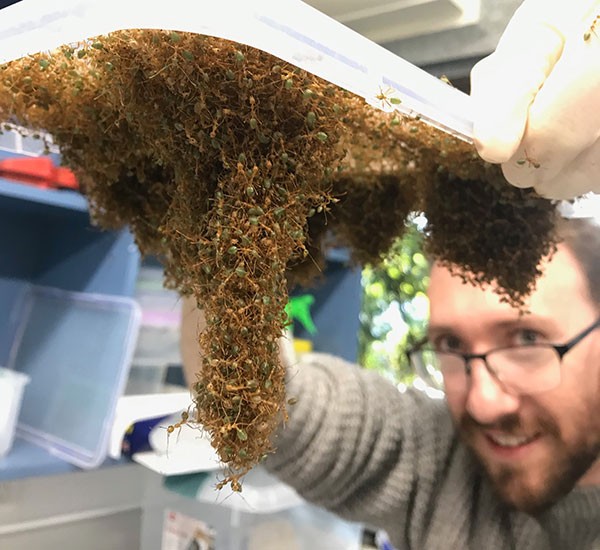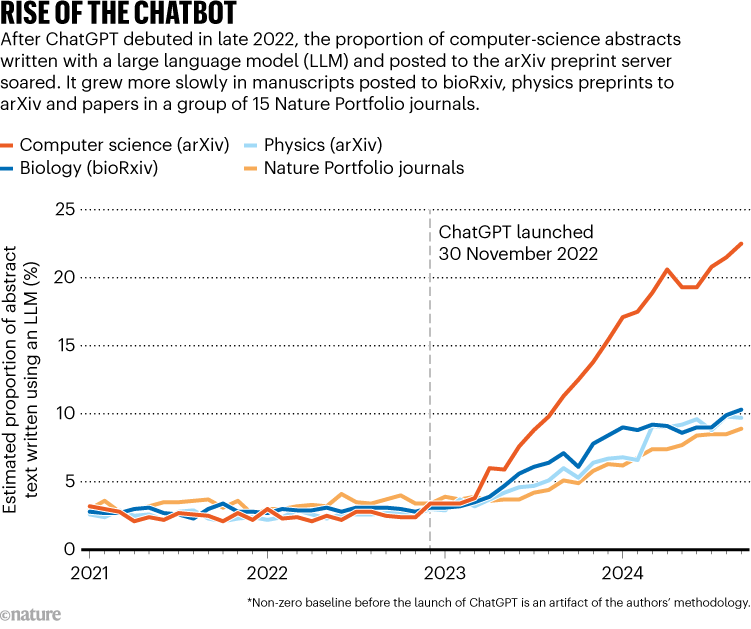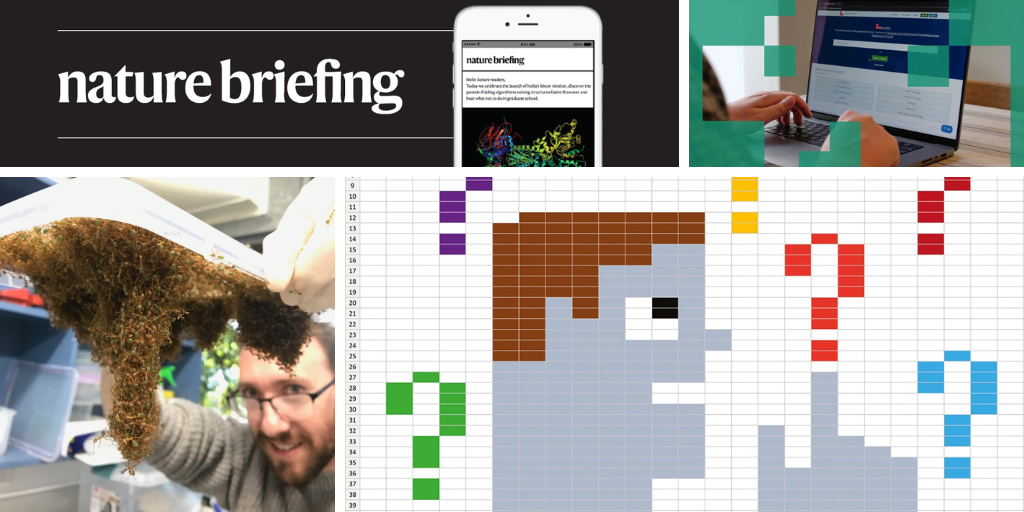You have full access to this article via your institution.
Hello Nature readers, would you like to get this Briefing in your inbox free every day? Sign up here.
Unlike humans, who tend to work less hard when taking part in group events such as a tug of war, ants are ‘superefficient’ — their strength is boosted when they work together. (Dr Chris Reid, Macquarie University)
Individual weaver ants (Oecophylla smaragdina) can pull harder when working as a team than they can alone. Researchers found that when working together, the ants can co-ordinate their movements and positioning to boost the strength of their pull. Their synchronicity, combined with other traits such as their sticky feet, almost doubles the average force contribution of each ant as more members join the team. Further exploring how these ants collaborate could inspire the design of robots to pull heavy loads, says biologist Chris Reid.
Reference: Current Biology paper
Some parts of our bodies — such as the insides of the mouth and uterus — heal without scarring. Now researchers are delving into why this happens, and how it might help to head off some of the downsides of scars. The team compared mouth and face skin and found that, in mice, specialized skin cells communicate differently during healing: in mouth cells, a cell signaling pathway and a protein seem to prevent the formation of scars. Samples of human skin biopsies seem to back up the findings.
Reference: Science Translational Medicine paper
An analysis of DNA from the remains of two young people that lived in seventh-century England reveals that they had recent West African ancestry. Both people — a man uncovered in Dorset and a teenage girl in Kent — probably had a grandparent from West Africa. The findings suggest that people living in Great Britain at that time were more diverse than previously thought. The two were buried among their peers in their respective cemeteries, which suggests they were valued by their communities, the research team says.
Reference: Antiquity paper 1 & paper 2
Infographic of the week

Source: Ref 1.
Preprint servers are seeing a rise in submissions seemingly produced by paper mills or with help from artificial intelligence (AI) tools. Such content poses a conundrum for preprint services: many are non-profit organizations devoted to making it easier for scientists to publish their work; now they are having to invest resources into screening submissions. And it’s not always clear where to draw the line between legitimate use and AI slop. (Nature | 6 min read )
Features & opinion
“There is kind of this belief that a spreadsheet is not a good tool for doing science,” says data scientist Yanina Bellini Saibene, “and that is not correct.” The tools have the benefit of being widely available, but there are pitfalls to watch out for: for example, Microsoft Excel is notorious in genetics circles for automatically converting gene names such as OCT4 into dates. The key to success, say experts, is to ask the right questions before you begin — and Nature is here to point you in the best direction.
During ten years at the US National Institutes of Health, neuroscientist Vani Pariyadath saw the agency’s approach to studying addiction evolve to recognize the influence of factors such as systemic racism. No longer: changes ordered by the administration of US President Donald Trump “have challenged the core of our research”, she writes. “How can substance-use disorders be studied effectively without accounting for the social contexts in which they develop and persist?” Pariyadath felt she had to resign. Now she considers how to keep biomedical research moving forward.
Last month, we shared evidence-based tips on how best to discuss vaccine hesitancy with your inner circle. Public-health scientist Jess Steier took the challenge to a wider sphere when she agreed to take part in a debate about US health policy convened by an organization called Braver Angels that facilitates cross-partisan engagement. The experience left her hopeful about the ability for people to have “respectful discourse, even on deeply polarizing topics”, she writes. And it confirmed one of our tips: it’s a mistake to dismiss people’s concerns out of hand. “We have to listen first, lead with empathy, and meet people where they are,” concludes Steier.
Today I’m listening to the first recorded sounds made by sharks — in this case, a captive rig shark (Mustelus lenticulatus). The rigs made clicking noises — possibly by snapping their teeth together — when startled by researchers, but it’s not clear if they’re actually trying to communicate something.
Let me know whether my attempts at communication are coming in loud and clear — please send your feedback on this newsletter to [email protected].
Thanks for reading,
Flora Graham, senior editor, Nature Briefing
With contributions by Jacob Smith
• Nature Briefing: Careers — insights, advice and award-winning journalism to help you optimize your working life
• Nature Briefing: Microbiology — the most abundant living entities on our planet — microorganisms — and the role they play in health, the environment and food systems
• Nature Briefing: Anthropocene — climate change, biodiversity, sustainability and geoengineering
• Nature Briefing: AI & Robotics — 100% written by humans, of course
• Nature Briefing: Cancer — a weekly newsletter written with cancer researchers in mind
• Nature Briefing: Translational Research — covers biotechnology, drug discovery and pharma


